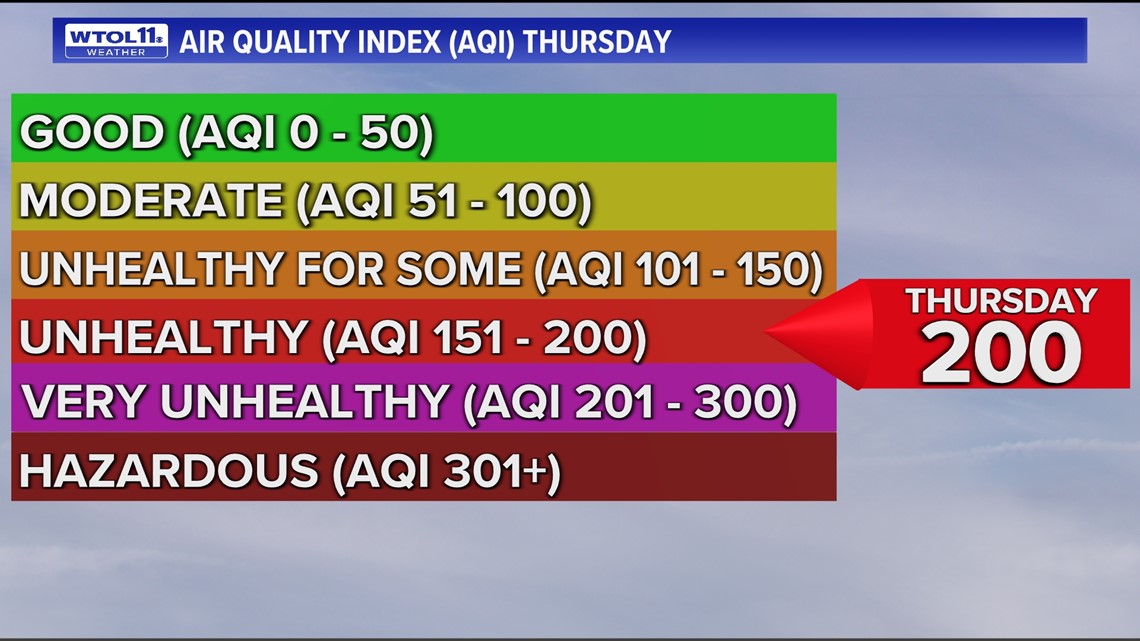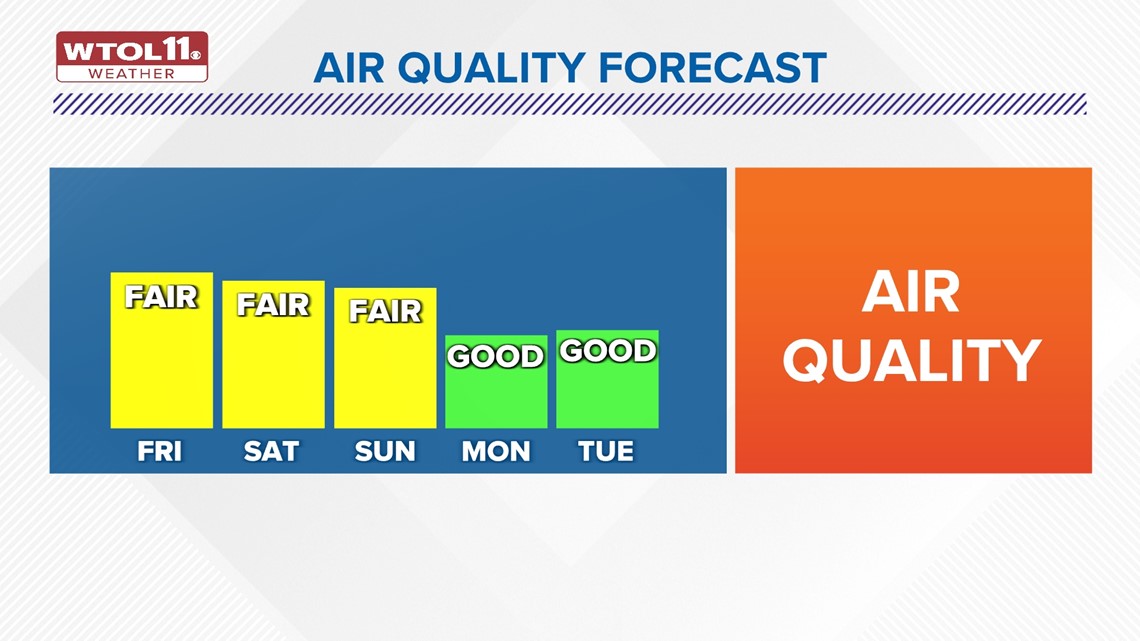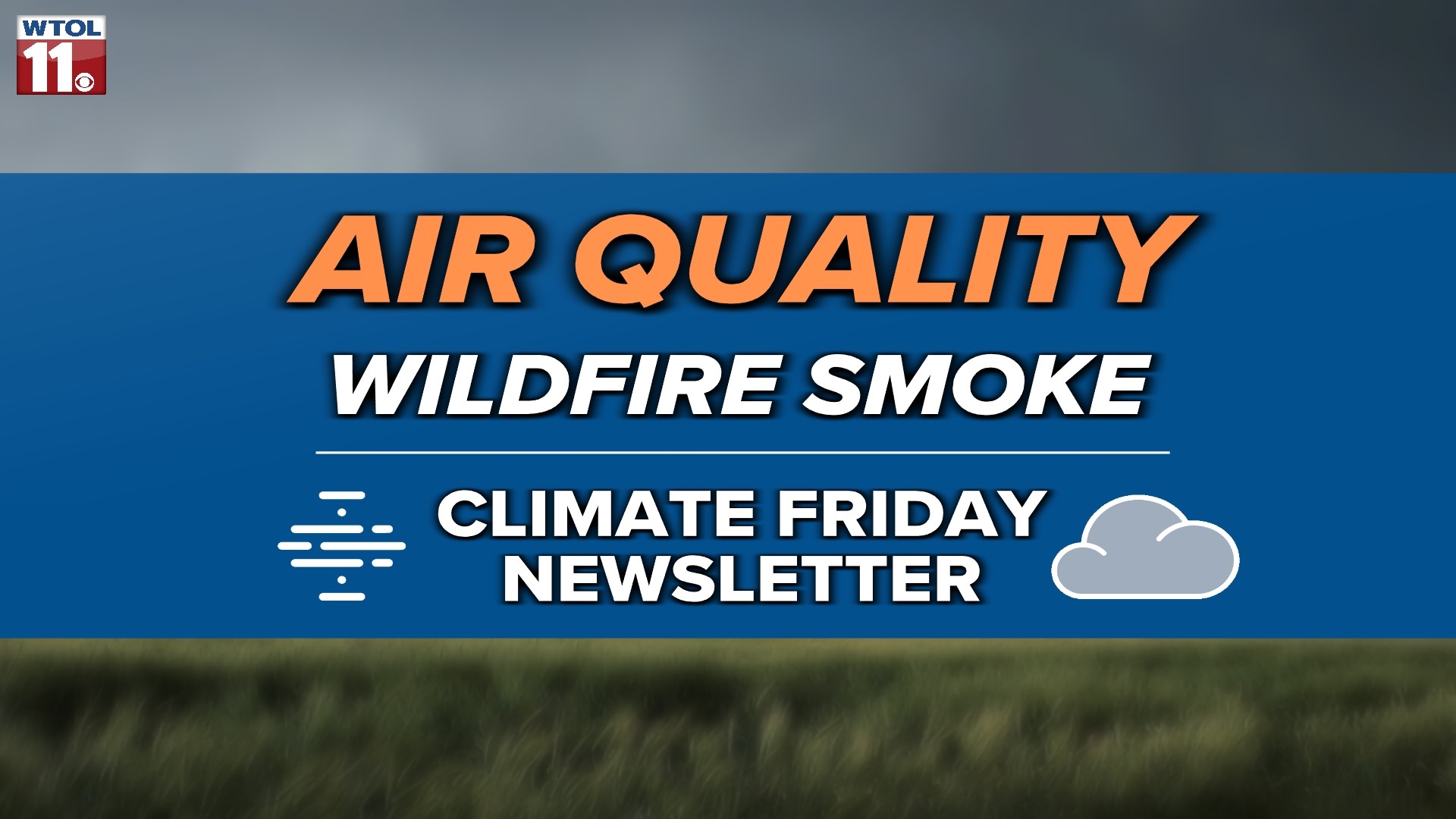TOLEDO, Ohio — Canadian wildfire smoke enveloped the region this week, harming air quality, cancelling outdoor activities and obscuring the sunshine.
Wildfire smoke has been a hot topic this summer and will continue to impact much of Canada and the United States in the coming months. When will the haze dissipate and how is climate change making wildfires more common and intense? We'll answer those questions and more in this week's edition of Climate Friday.
Prolonged drought and heat across Canada has enabled wildfires to spread rapidly, engulfing over 20 million acres of land. This vast burn area surpasses the historic 1989 wildfire season as the most impactful in Canadian history.
With over 500 fires still blazing, smoke has risen vertically in the atmosphere, riding the jet stream across the continent. This smoke has migrated to the Great Lakes region, sinking to the ground level due to a cold front pulling the dense air downward.
Throughout the week, this surface-based wildfire smoke remained stationary due to calm winds at the ground-level. Air quality levels deteriorated to record levels, remaining historically bad throughout the week.


Air Quality Index (AQI), a measure of particulate matter in the air, surpassed 200 in Toledo, approaching 300 in eastern areas like Port Clinton. The higher the AQI, the greater the concentration of pollutants. The lower the AQI, the cleaner the air.
Ideally, AQI levels should remain between 0-50 for optimal outdoor activity. When AQI surpasses 100, the air may irritate those with respiratory conditions, causing health concerns for the elderly and young.
When AQI reaches 150, the air is unhealthy for all individuals and prolonged outdoor exposure is highly discouraged. An AQI over 200 can cause short-term irritation of the lungs, eyes, and skin, and extended exposure can increase risk for long-term health complications.
Some of the symptoms of extended exposure to polluted air include itchy eyes, scratchy throat, coughing, sneezing and shortness of breath. Air quality levels in northwest Ohio and southeast Michigan deteriorated to historic levels this week, surpassing polluted international cities such as Dubai and Delhi.
Toledo, Cleveland, Detroit, and other regional cities boasted the worst air in the world Wednesday and Thursday. Conditions have finally started to improve Friday as AQI levels have fallen back to the double-digits.
So how is climate change impacting wildfires and what trends will you experience in the future?
Climate change is making wildfires more common and severe, a trend that will grow exponentially in the coming decades. Unseasonable heat is growing more common, especially during the summertime, and this extreme warmth predisposes conditions for wildfire spread.


Warmer temperatures increase evaporation from the soil, sapping moisture form the ground. This gradual process perpetuated over years and decades dries out the soil, priming it for wildfire development and proliferation. This reduced moisture content makes the ground and foliage more susceptible to both manmade and natural fires and enables wildfires to spread rapidly.
This cycle has scorched millions of acres more than would have occurred naturally. Though wildfires have always occurred even before manmade emissions, they have grown more intense and severe in recent years.
Anecdotally, think about how common wildfire smoke is becoming in Ohio and Michigan. This phenomenon of wildfire smoke diminishing air quality in the Midwest is relatively new, but will sadly become a regular player in our weather in the future.
Wildfire smoke will continue to thin out and move east this weekend. You'll see and smell and improvement in the air quality, making outdoor time more safe and enjoyable.
Though the smoke is gone for now, it will likely be back this summer. You can trust the WTOL 11 weather team to keep you updated throughout the summer on local impacts of the wildfires.
RELATED VIDEO

